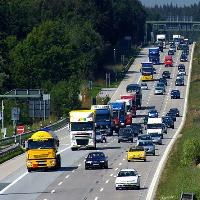(BRUSSELS) – The European Commission proposed a world first digital driving licence Wednesday, part of a package to modernise driving licence rules and facilitate enforcement of traffic rules across borders.
More than 20,000 lives were lost on EU roads last year and the majority of victims were pedestrians, cyclists and users of scooters and motorbikes.
The new rules are designed to improve safety for all road users on the road to ‘Vision Zero’ having no deaths on EU roads by 2050. They will prepare drivers better for zero-emission vehicles and for driving on city roads, alongside more bicycles and two-wheelers, and with many pedestrians around. They will also allow young drivers to gain experience through an accompanied driving scheme – from the age of 17, young people will be able to learn to drive and obtain a licence. Those who pass at 17 will be able to drive alone from their 18th birthday, and to work as a professional driver as soon as a specific job allows. This will help address the current driver shortage.
The proposal on driving licences amends existing EU law with the objective of improving road safety, with measures including:
- A probation period of at least two years for novice drivers after passing the test, and a zero-tolerance rule on drink-driving. This is essential as even if young drivers only represent 8% of all car drivers, 2 out of 5 fatal collisions involve a driver or rider aged under 30.
- Allowing young people to take their test and commence accompanied driving of cars and lorries from the age of 17, to gain driving experience.
- Adapting driver training and testing to better prepare drivers for the presence of vulnerable users on the road. This will help improve safety for pedestrians, cyclists, as well as users of e-scooters and e-bikes as the EU transitions to more sustainable urban mobility.
- A more targeted assessment of medical fitness, taking into account advances in medical treatment for diseases such as diabetes. Drivers will also be encouraged to update their driving skills and knowledge to keep up with technological developments.
To simplify the recognition of driving licences between Member States, the digital driving licence will be much easier to replace, renew or exchange a driving licence since all procedures will be online. In the same vein, it will also be easier for citizens from non-EU countries with comparable road safety standards, to exchange their driving licence for an EU one.
Updated testing rules will take into account the transition to zero-emission vehicles. They will, for example, assess the knowledge and skills linked to advanced driving assistance systems and other automated technologies. Novice drivers will also be taught how their driving style has an impact on their emissions the timing of gear changes, for example. Finally, the permitted mass of a ‘B’ category vehicle will be adjusted for alternatively fuelled vehicles, since battery-carrying zero-emission vehicles can be heavier.
On cross-border enforcement of safety-related traffic rules, some 40% of cross-border offences in 2019 were committed with impunity, either because the offender was not identified or because the payment was not enforced.
The new proposal would allow enforcement authorities to gain access to national driving licence registers, and address current shortcomings in cooperation between Member States when investigating offences.
The Commission proposes to expand the scope of traffic offences covered to: not keeping sufficient distance from the vehicle in front; dangerous overtaking; dangerous parking; crossing one or more solid white lines; wrong-way driving; not respecting rules on the use of emergency corridors; the use of an overloaded vehicle.
These additions will help reduce impunity for such offences and improve Member States’ ability to penalise offenders from other Member States. It will also ensure equal treatment of resident and non-resident offenders.
A dedicated IT portal will give citizens easy access to information on the road safety rules in place in each Member State and, in time, allow them to pay any fines directly.
The rules will also be aligned with the EU rules on personal data protection (GDPR and LED).
The proposals will now be considered by the European Parliament and the Council under the ordinary legislative procedure.
EU proposals on driving licences and cross-border enforcement of traffic offences - guide
Proposal for a Revision of the Directive on Driving Licences
Proposal for a Directive on the Union-wide effect of certain driving disqualifications
Factsheet: New EU driving licence on its way what to expect



